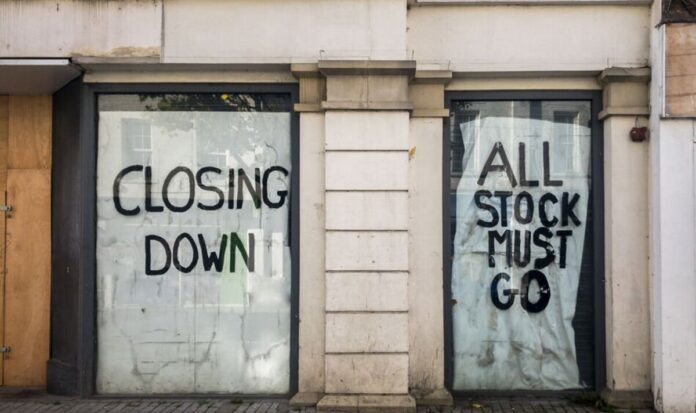Thousands of shops, bars and restaurants are at risk of closure in the UK (Image: Getty) Thousands of shops, bars and restaurants could be lost across Britain as rising interest rates leave businesses unable to pay Covid debts and buy new stock. The stark warning came from retail and hospitality chiefs after the Bank of England raised the base rate from 5 per cent to 5.25 per cent in its continued attempt to get inflation under control. The annual rate of inflation fell to 7.9 per cent in June, down from 8.7 per cent in May. Andrew Goodacre, CEO of the British Independent Retailers Association, said: ‘I fear the worst, I really do. ‘I admire the resilience of independent businesses on the High Street but the pressure on their cash-flow is mounting and they need a strong autumn to have any chance of meeting their debts. Thousands more could be lost.’ He pointed to problems facing the retail chain Wilko – that said it was closing 14 of its stores last week – as showing the difficulty of staying afloat with reduced cash-flow caused by soaring costs and debts. Latest figures showed 1,139 pubs, restaurants, bars and cafes closed their doors for good between Ma (Image: Getty) It has emerged Wilko borrowed £40million last year to avoid going bust. The latest rate rise has left hospitality venues struggling to pay the interest on £10billion of Covid loans, while independent traders, including shops, and hair and beauty salons, have £2.2billion of pandemic debt. Latest figures showed 1,139 pubs, restaurants, bars and cafes closed their doors for good between March and last month, up from 756 licensed premises that went bust in the first quarter of the year. Homeware chain Wilko is on brink of collapse (Image: Getty) The Hospitality Market Monitor report for July from data analysts CGA revealed 5,736 licensed premises have been shut in the past year, meaning 14,932 venues – or 13 per cent of the industry – have been lost since March 2020. The British Retail Consortium last week revealed 6,000 shops have disappeared from the High Street during the past five years, with the highest number of empty storefronts in the North and the Midlands of England. The figure for store closures is much higher but many outlets have since reopened as hair and beauty salons, and coffee shops. Hospitality businesses are particularly at risk of further rate rises, experts warn (Image: Getty) Huw Pill, the chief economist of the Bank of England (BoE), has admitted it risks raising interest rates too far in its attempt to get inflation under control. He conceded ‘it is possible we do too much’ to rein in price rises as analysts warned that over-tightening would push the economy into an ‘unnecessary recession’. Mr Goodacre hit out at the bank raising the base rate to 5.25 per cent in the same week as figures showed a 0.3 per cent drop in footfall for high streets last month, which has been blamed on the wet weather combined with low consumer confidence causing shoppers to stay at home. He said: ‘The BoE is using a blunt instrument based on a recent history of poor forecasting. ‘Inflation is falling and that is due to a reduction in energy costs, not interest rate rises,’ he added. Redfield & Wilton polling for this newspaper has shown that 22 per cent of householders are ‘very’ concerned and 22 per cent ‘fairly’ concerned about their ability to pay their mortgage or rent after the latest base rate rise. UK Hospitality chief executive Kate Nicholls said: ‘Hospitality businesses are particularly exposed to further rate rises, due mainly to the Covid loans many were forced to take out during the pandemic. ‘Yet another rise in interest rates only exacerbates the financial challenges many are grappling with, alongside high energy costs, food and drink inflation and labour shortages.’ Martin McTague, chair of the Federation of Small Businesses, said: ‘With concerns about a recession triggered by high interest rates growing, the base rate decision adds to the drip feed of economic bad news that small businesses have weathered since the cost of doing business crisis got its grips into the UK.’


